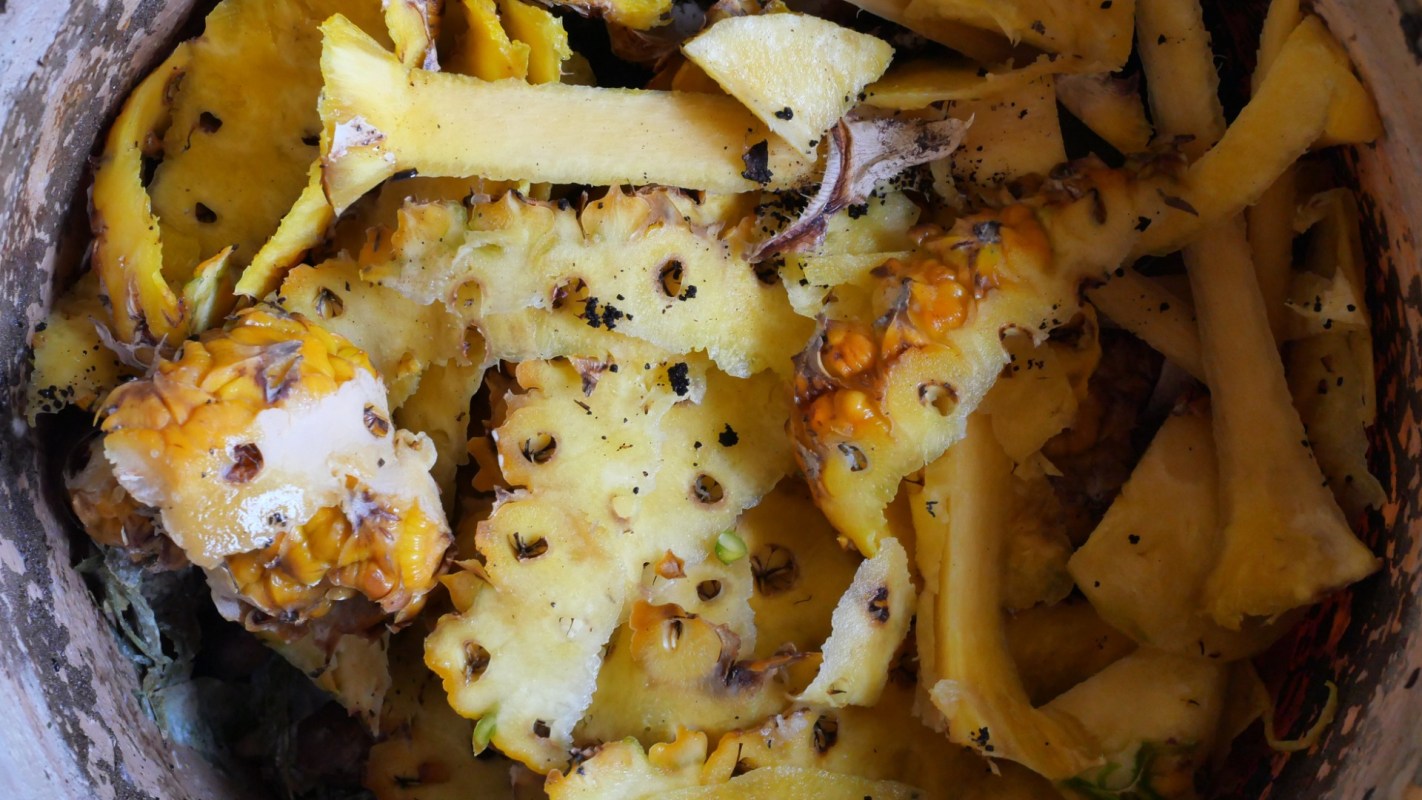Vietnamese company Fuwa Biotech makes natural cleaning products with an unusual key ingredient: pineapple skins.
A recent video by Insider Tech dives into the history and production process of Fuwa Biotech, a company that creates cleaning products using fermented pineapple skins. The company's name comes from the phrase "Fruit Warrior," according to Insider Tech.
Co-founder and chief production officer Le Duy Hoang started making fruit-based cleaners when his wife, Fuwa CEO Bui Thi Bich Ngoc, developed eczema, which they realized was partially caused by synthetic cleaning products, according to Insider Tech.
Insider's video states that the company's base organic cocktail is 10 parts water, 1 part sugar, and 3 parts pineapple — a formula concocted by Rosukon Poompanvong, a scientist and Buddhist nun.
About half of the pineapples you eat end up in the trash. The skin and core can be composted, but in many places, they're not.
— Insider Tech (@TechInsider) April 14, 2023
We went to Vietnam to see how one company creates natural soap and cleaners from this world wide waste.👇pic.twitter.com/01MnnYShgU
Fuwa purchases fruit waste from nearby corporations that produce canned pineapple. Workers slice up the pineapples, clean them with water, mix in some sugar and water, and stir, allowing the fermentation process to begin.
The mixture ferments thanks to the acids and enzymes in the pineapple waste, which can fight against germs.
As Hoang says in Insider's video, after one month of aging, "the pineapples' peels are much softer."
"Some have started to decompose," Hoang added. "And there's the nice scent."
After two months, the formula forms a globby texture. After three months, it's so full of enzymes and acids that it can be used as a cleaner. It's then filtered into a potent liquid form, and the solid waste serves as fertilizer for local farms. The company adds oils like coconut and corn oil, purchased from local farmers that make it from agricultural waste, to make detergents.
Insider reports that Fuwa's dish soap only costs about $2, which is close to the price of most synthetic cleaners. It also lasts about two years, which is roughly the same shelf life as competitors.
However, research suggests that in certain temperatures, Fuwa's fruit-based cleaners might become ineffective, according to Insider's video.
Research indicates that fruit enzyme cleaners kill one kind of bacteria with equal success to bleach and water — though many other types of bacteria still need to be tested. Fruit enzyme cleaner also has the potential to make waste cleaner, according to Insider.
Synthetic cleaning products have a number of disadvantages. They contain chemicals and ingredients that many water treatment facilities aren't equipped to handle, such as nitrogen and phosphorus.
These ingredients make algae grow faster than is healthy for ecosystems — for example, detergent pollution often mucks up rivers, according to Insider. Cleaning products like bleach can also cause asthma, and when mixed improperly, can create a gas with deadly side effects. Cleaning products can also have adverse effects on air quality, according to the EPA.
"Our mission is to help people around the globe reduce one worry in their daily lives. That is the danger of having toxic chemicals in their homes," Fuwa COO Do Xuan Tien said in the video.
Join our free newsletter for cool news and actionable info that makes it easy to help yourself while helping the planet.









